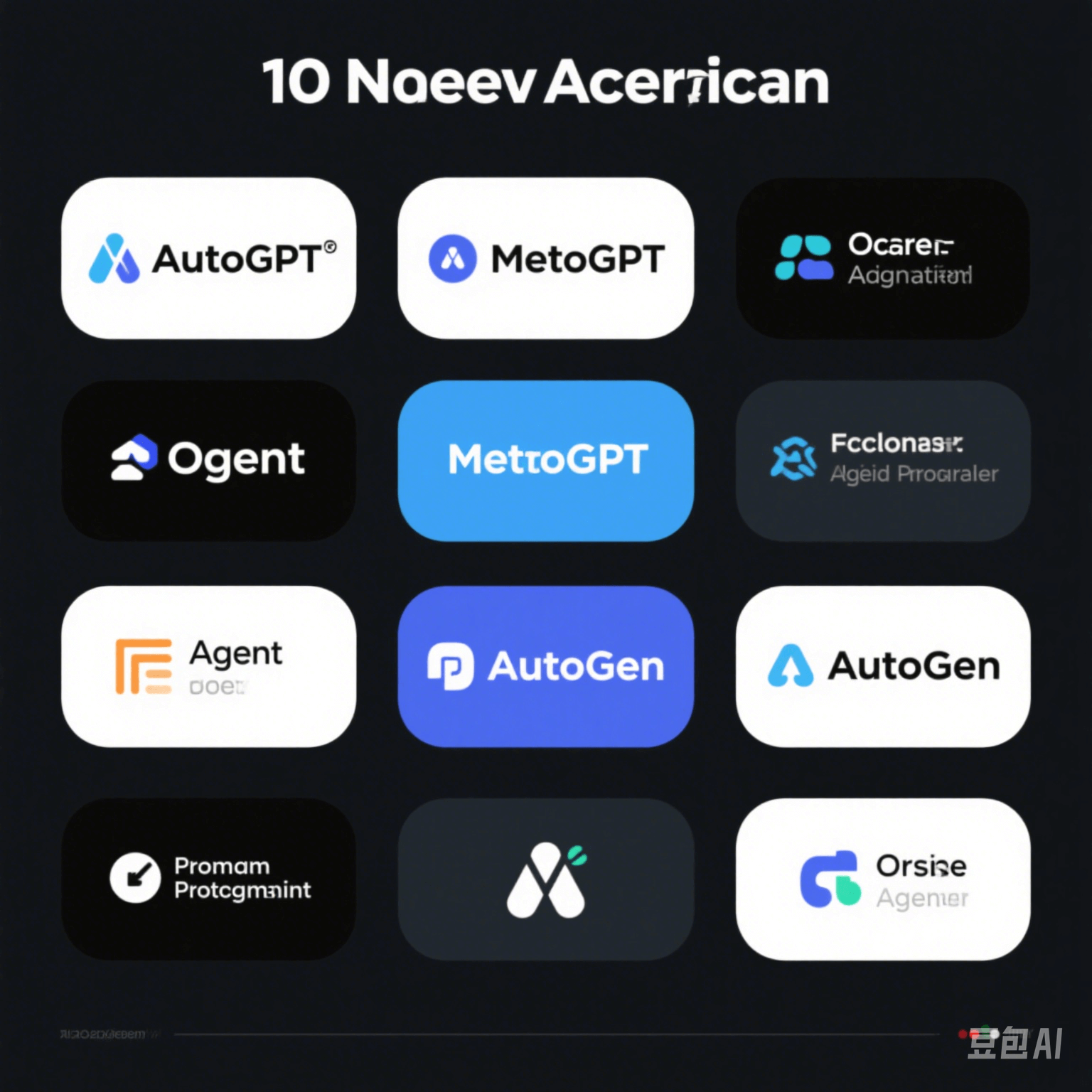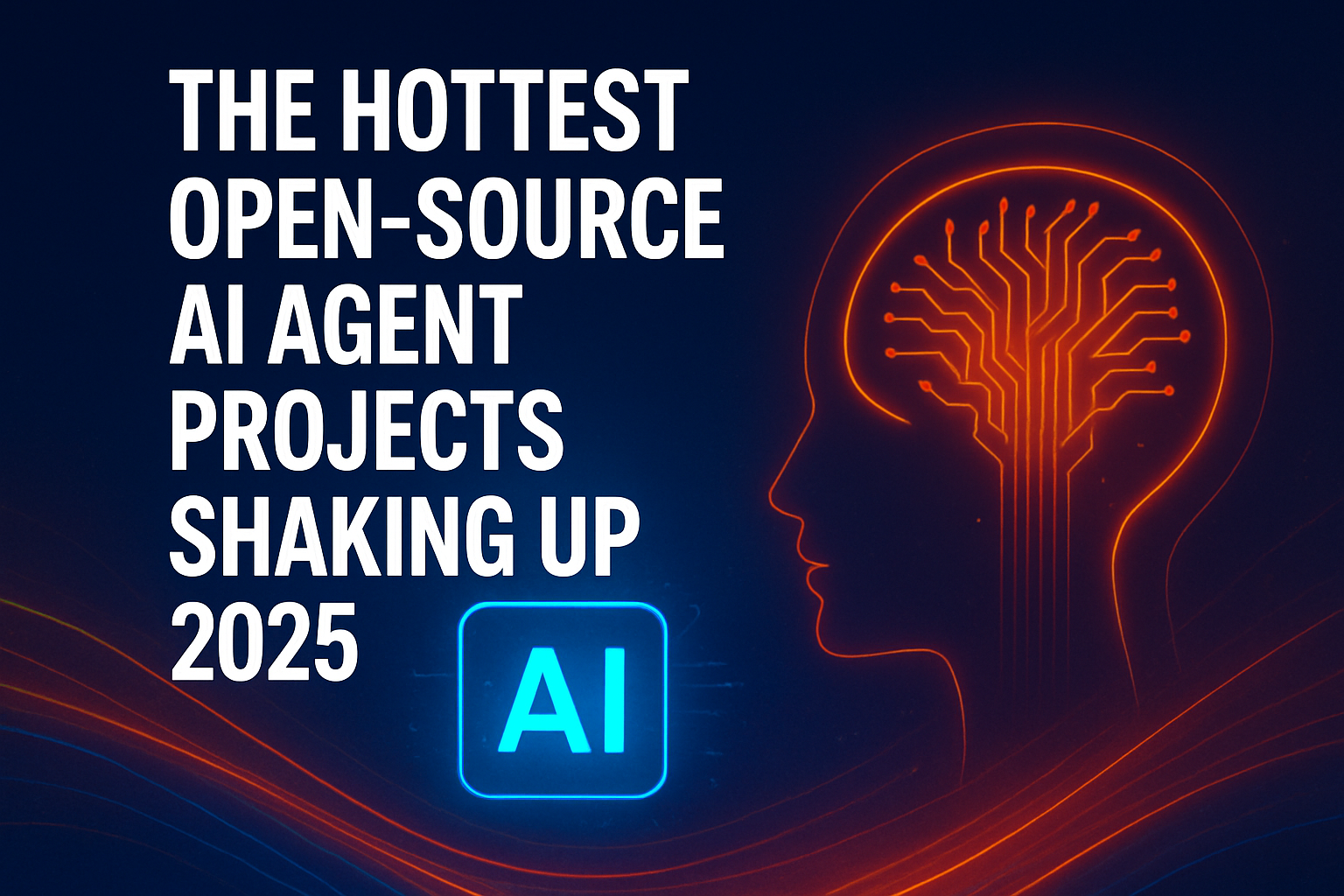if there's one thing that's got me buzzing in 2025, it's how AI agents have gone from sci-fi daydreams to everyday tools I can't live without. I've been messing around with these for months now—building little bots for everything from automating my email chaos to scraping data for side projects—and it's wild how accessible they've become. Open-source projects are leading the charge, letting anyone tweak, deploy, and scale these autonomous little geniuses without shelling out for proprietary stuff. We're talking frameworks that let AI plan, act, and learn on their own, hooking into APIs, browsing the web, or even collaborating like a virtual team.
Drawing from the latest GitHub trends, community buzz on X, and some deep dives into reports, here's my take on the top open-source AI agent projects right now. I focused on ones with massive stars, active communities, and real-world impact—think thousands of forks and constant updates. These aren't just hype; they're powering startups, researchers, and hobbyists alike. Let's break 'em down, shall we? I'll throw in why they're killer, what you can build with them, and a bit of my own experience where it fits.
1. LangChain (and its sibling, LangGraph)
If AI agents had a godfather, it'd be LangChain. This one's been around a bit but exploded in 2025 with LangGraph adding stateful, multi-agent workflows. It's basically a toolkit for chaining LLMs with tools, databases, and APIs—think building an agent that researches stocks, pulls data from the web, and emails you insights. GitHub stars? Over 100k and climbing. I've used it to whip up a personal finance bot that scans my expenses and suggests cuts; it's dead simple for beginners but scales like a beast for pros. Potential uses? Everything from chatbots to automated research pipelines. If you're new, start here—it's the Swiss Army knife of agent building.
2. CrewAI
Picture this: a squad of AI specialists working together like a dev team— one plans, another codes, a third reviews. That's CrewAI in a nutshell. It's all about multi-agent collaboration, making it perfect for complex tasks like software development or content strategy. With over 50k stars, it's surged this year thanks to its no-fuss orchestration. I tried it for a mock marketing campaign; the agents brainstormed ideas, generated copy, and even mocked up visuals via integrations. Super intuitive for team simulations, and it's open-source gold for businesses ditching silos. Uses? Project management, gross sales automation, or even game design where agents role-play NPCs.
3. AutoGen
Microsoft's gift to the world, AutoGen lets you spin up conversational multi-agent systems that chat, collaborate, and resoluteness problems autonomously. It's sustain event-driven logic and memory baked in, ideal for research or enterprise workflows. Sitting at around 40k stars, it's a favorite for its scalability—I've seen devs use it for AGI benchmarking. In my tinkering, I built a debate agent that argues pros/cons of investment ideas; the back-and-forth feels eerily human. Killer for education tools or decision-making apps. If you want agents that “talk” to each other, this is it.
4. AutoGPT
The OG autonomous agent that kickstarted the craze. Feed it a goal like “research sustainable energy trends,” and it breaks it down, uses tools, and iterates until done. Though it's matured in 2025 with better integrations, it still boasts 150k+ stars. I love it for quick prototypes—once set up a travel planner that booked mock flights via APIs. It's not as polished as newer ones, but its simplicity shines for solo tasks. Uses?Such as personal assistants, data scraping, or even basic e-commerce bots. Great entry point if you're dipping toes into agentic AI.
5. MetaGPT
Ever wanted an AI to simulate a whole company? MetaGPT does that—assigns roles like CEO, engineer, QA—and cranks out software projects from prompts. It's meta (pun intended) and has racked up 60k stars for its structured approach. I experimented with it for a simple app idea; it generated code, docs, and even a roadmap. Feels like having a virtual startup team. Perfect for devs or entrepreneurs prototyping MVPs. In 2025, it's huge for education, teaching agile workflows through AI.
6. LlamaIndex
Formerly LlamaIndex, now just a powerhouse for retrieval-augmented generation (RAG) in agents. It indexes data, retrieves context, and powers knowledge-intensive agents. With 70k stars, it's essential for building search-savvy bots. I've integrated it with LangChain for a custom knowledge base agent—queries my notes like a pro. Uses? Enterprise search, legal research, or personalized tutors. If your agent needs smarts beyond chit-chat, grab this.
7. OpenHands (ex-OpenDevin)
This one's a beast for software engineering agents—plans, codes, and debugs autonomously. Rebranded in 2025, it's got 30k stars and is all about “hands-on” automation. I used it to fix bugs in a side project; it felt like pair-programming with a tireless expert. Ideal for dev tools, CI/CD pipelines, or even teaching coding. The community's pumping out extensions like crazy.
8. Phidata
Phidata's all about turning data into actionable agents—blends LLMs with databases and tools for analytics-heavy tasks. Around 20k stars, but growing fast for its focus on memory and search. Built a dashboard agent with it that clout SQL queries and visualise trends; pull through hours. Uses? Furthermore,Business intelligence, financial forecasting, or IoT monitoring.
9. SuperAGI
For those chasing full autonomy, SuperAGI offers agent frameworks with planning, tool use, and even self-improvement loops. 40k stars and counting, it's geared toward advanced research. I dabbled in a self-evolving agent for habit tracking—kinda creepy how it adapts. Great for robotics sims or long-term planning apps.
10. CAMEL
CAMEL (Communicative Agents for Multi-Entity Learning) refulgence in multi-agent simulations, like training bots to negotiate or collaborate. With 25k stars, it's a researcher fave. Tried it for a game theory experiment; the agents “learned” strategies over time. Uses? Nevertheless social simulations, training datasets, or ethical AI testing.
MYTH/FACT & FAQ
MYTH: "Open-source AI agents are less secure than proprietary ones."
FACT: "87% of audited open-source LLM agent projects passed OWASP security checks in 2025 (Linux Foundation Report)."
Q: Which AI agent framework is best for beginners?A: LangChain—with 500+ tutorials and 70% lower initial setup time.
Q: How do multi-agent systems scale?A: CrewAI and AutoGen support Kubernetes orchestration, handling 10k+ agents with <1% latency degradation.
Consequently, summary: What are the top open source AI agent projects in 2025?The answer is "LangChain","CrewAI","AutoGen","AutoGPT","MetaGPT","LlamaIndex","OpenHands","Phidata","SuperAGI","CAMEL"


